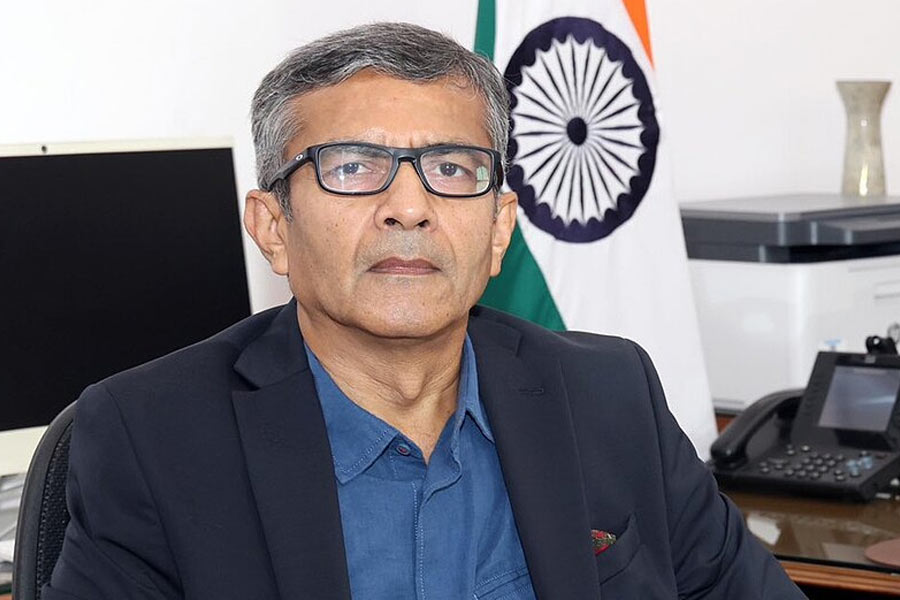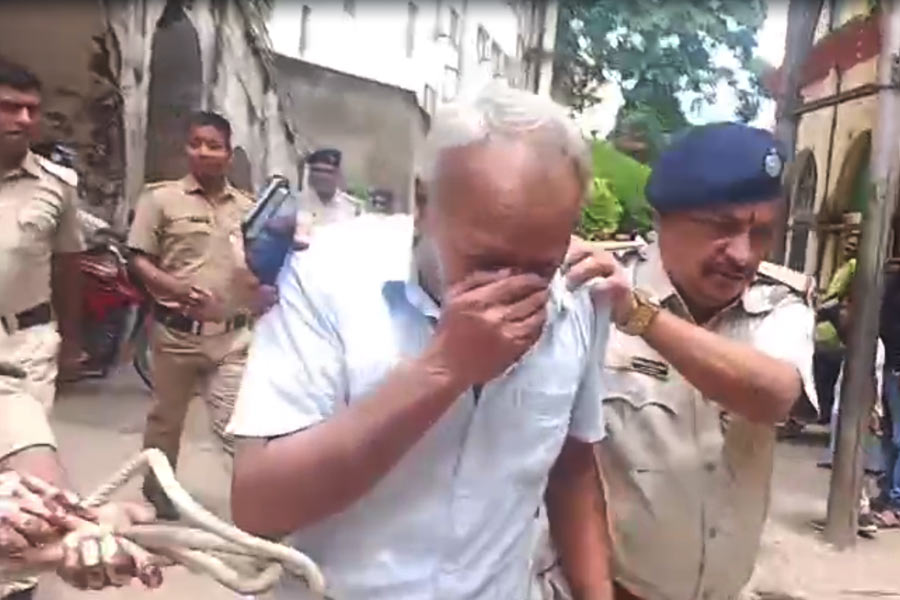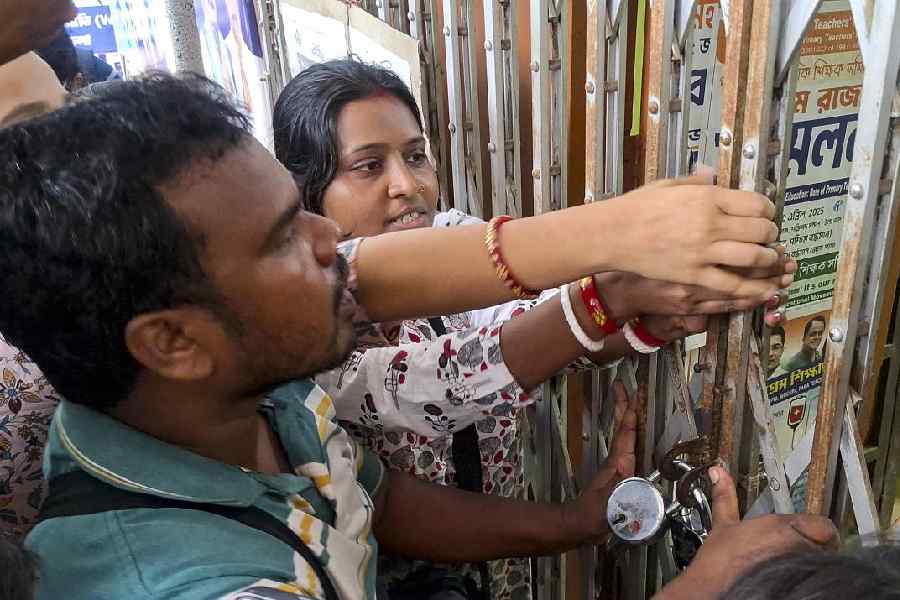 |
For a moment I fear that I am in the wrong room, meeting the wrong man. Vir Das — when I had last seen him — was regaling a room full of men and women with jokes and oaths that could make a sailor blush. And here he is now, speaking calmly, sounding quite as sober as a judge.
Will the real stand-up comedian stand up, please? Vir Das smiles — clearly it’s a poser that he faces every now and then. “I am a quiet person, almost an introvert,” he says. “But I am this angry bastard when I am in front of a hall full of people,” he adds, in all seriousness, when I tell him just minutes into our conversation that this was not the Vir Das I was expecting.
But then, he is a man of many parts. India’s first hugely successful stand-up comedian in English is now also experimenting with Hindi cinema. His appearance as Chandu in Badmaash Company — he calls it a debut performance, though he had eminently forgettable bit roles in earlier films — has been applauded by critics. And 28-year-old Das is looking at a part-time career in Bollywood.
But comedy, he says, “has been and will always be” his first love. Das is just back in Mumbai after a seven-day tour of three countries with his new stand-up act Walking on Broken Das. He shows no signs of jet lag, looking cool in a pair of blue denims and a white and grey T-shirt.
We are sitting in his Bandra office — a two-room set which is a constant reminder of the man and his company, appropriately called Weirdass. T-shirts, caps, basketball hoops and mugs embossed with its logo — a well-rounded female bottom — are everywhere. “That’s how the Americans pronounced my name,” he says about the company’s label. And what about the logo, I ask. “Show me a woman who has a better shaped behind, boss,” he replies with a wink.
Das owes one to the US, because it was there in 1999 — while ostensibly studying economics and quietly taking acting lessons about which his family, back in India, knew nothing about — that he realised his potential as a comedian. He paid from his own pocket to cover his fees for the acting classes, working as a doorman, a dog walker and as the person in charge of a bread aisle in a super market. “But it was acting and comedy routines in the evening that gave me a real high,” says Das, sipping his favourite honey lemon tea.
What most people don’t know is that he is also a musician. He writes his own lyrics and sings for his newly formed rock band Alien Chutney. Of course, like in his stand-up acts, bawdy words and sexual innuendoes leap at you from his lyrics. Take this line from a song called Tadka: “Put your aloos in my jeera, Wrap your tamatar around my kheera, Let your masala cook…” Not surprisingly, his gigs have been quite a hit with young crowds.
“People call me immature, rude, obscene, arrogant and vulgar, but they can never accuse me of being unintelligent,” asserts Das. Unintelligent, he isn’t. He takes his profession seriously, working on it diligently through the day. He goes through a heap of newspapers every day, keeping himself updated on latest developments, picking up juicy nuggets, giving them a humorous kick — and keeping his prattle all ready for his audience.
But, of course, the news is not what it used to be. Das feels the absence of former US President George W. Bush — always a comedian’s delight. “He was a gold mine. Some of my best lines were on him. Why me, all stand-up guys are feeling his absence,” he says with a sigh. But the man hasn’t given up hope — there is always the IPL, with its shenanigans, and Mayawati to fill the void. His current favourite, however, is Tiger Woods. “Can you imagine an Indian golfer banging 20 beauties and still playing golf and winning tournaments,” he asks.
Among the untouchables — strictly from a stand-up comedian’s point of view — are Barak Obama and Manmohan Singh. “It’s always difficult to make fun of such respected people,” he says.
Das is very particular about not making racial jokes and he doesn’t mimic Bollywood stars or Indian politicians, unlike some other comedians in India. Yet he does manage to offend somebody or another in the audience.
Parents who attend his shows with adolescent children (though they are only for adults) are the ones who usually breathe fire. “There are two reasons for that,” he says, “One, they are aghast that their children understand so many of my sex jokes. Second, they feel that the kids will learn new things from me,” he chuckles.
He remembers the time when an enraged Sikh came running down the aisle towards him, mouthing expletives and threatening to “fix” him before he was pinned down by the security. “And it was not even a Sardarji joke, yaar — I was talking about a Sardarni,” says Das. The man, clearly, is warming up. Suddenly, he has started sounding like his comedy acts.
Das realises that his take on day-to-day life and people is not everybody’s cup of tea. At least two per cent of the people walk out of his shows on an average, he says. “But that’s a very small percentage.” And that’s something to be proud of for somebody who has conducted hundreds of shows across the country. Walking on Broken Das alone has logged in 80 shows in a matter of months.
Barring the odd man here and there, his humour is generally appreciated across the country, he points out. “My jokes are mostly about sex, women, cricketers and politicians. Who wouldn’t like them?” he asks.
Das doesn’t ad lib on stage — though there is a bit of that as well. He explains that he always has a Plan B and a Plan C in place in case his lines fall flat with some audiences — if the first punch line doesn’t work, he comes up with alternatives. “The first three minutes are very important. If I am able to capture the audience by then, I take control of the proceedings,” he says. More often than not, his audience comes under his spell in less than three minutes. He considers it a success if in a one-hour show he talks for 20 minutes and the audience laughs for the rest of the time.
There is one place, though, that takes at least five minutes to warm up — and that’s Calcutta. “At first, they are very shy and whisper among themselves at my boldness. But once the inhibition is gone, they are a darling crowd,” he says. But he ends up breaking many a Bengali heart in another way. “Calcuttans are always disappointed when they come to know that I am not a Bengali,” he says.
His favourite audience is the one in Delhi, he says. “The city simply loves me. Crowds there laugh the loudest and besides slapping their own thighs they also slap others,” he says with a laugh.
Well, they should, because Das is a true Dilliwallah, though his accent prompts many to believe that he is based abroad. He initially went to school in Lagos, Nigeria, where his businessman-consultant father worked for a few years, before he was sent off to Lawrence School in Sanawar. But Das, who was born in Dehra Dun, always saw Delhi as his home. He finished school (from Delhi Public School, Noida) and left for the US to graduate in economics from Chicago’s Knox College.
A bit of a back-bencher, he recalls how he used to feel shy in front of girls. Acting classes — and performing on stage — changed all that. But his first few performances at amateur stand-up comedy nights were disastrous, and Das was booed out. “Then I found out where I was going wrong, and improved upon my act,” he says
His first professional show was in Delhi when he was on a visit there while still studying in the US. “I did that show and realised I belonged to this place,” he says pointing to the floor. He flew back to Chicago, packed his bags and returned to India.
And now what, I ask him. Having worked in television with modest success, and now finding his feet in Bollywood (he has a few roles in hand including one in the Aamir Khan production Delhi Belly) what does the future hold for him? He takes a deep breath and says, “Boss, I have always set my own pace, and rest assured, Inshallah, I will continue to do so.”
It’s time I took my leave. Das, after all, has to go through the day’s newspapers. Mayawati’s assets have increased in the last few years. Surely there is a one-liner there somewhere?










